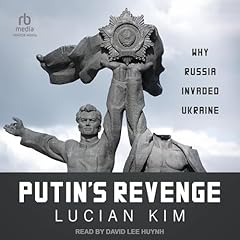
On a Knife Edge: How Germany Lost the First World War
Cambridge Military Histories
No se pudo agregar al carrito
Add to Cart failed.
Error al Agregar a Lista de Deseos.
Error al eliminar de la lista de deseos.
Error al añadir a tu biblioteca
Error al seguir el podcast
Error al dejar de seguir el podcast
 Exclusivo para miembros Prime: ¿Nuevo en Audible? Obtén 2 audiolibros gratis con tu prueba.
Exclusivo para miembros Prime: ¿Nuevo en Audible? Obtén 2 audiolibros gratis con tu prueba.Compra ahora por $30.76
-
Narrado por:
-
Elliot Fitzpatrick
Was the outcome of the First World War on a knife edge? In this major new account of German wartime politics and strategy Holger Afflerbach argues that the outcome of the war was actually in the balance until relatively late in the war.
Using new evidence from diaries, letters, and memoirs, he fundamentally revises our understanding of German strategy from the decision to go to war and the failure of the western offensive to the radicalization of Germany's war effort under Hindenburg and Ludendorff and the ultimate collapse of the Central Powers. He uncovers the struggles in wartime Germany between supporters of peace and hardliners who wanted to fight to the finish. He suggests that Germany was not nearly as committed to all-out conquest as previous accounts argue. Numerous German peace advances could have offered the opportunity to end the war before it dragged Europe into the abyss.
©2022 Holger Afflerbach (P)2024 TantorLos oyentes también disfrutaron:




















Las personas que vieron esto también vieron:








